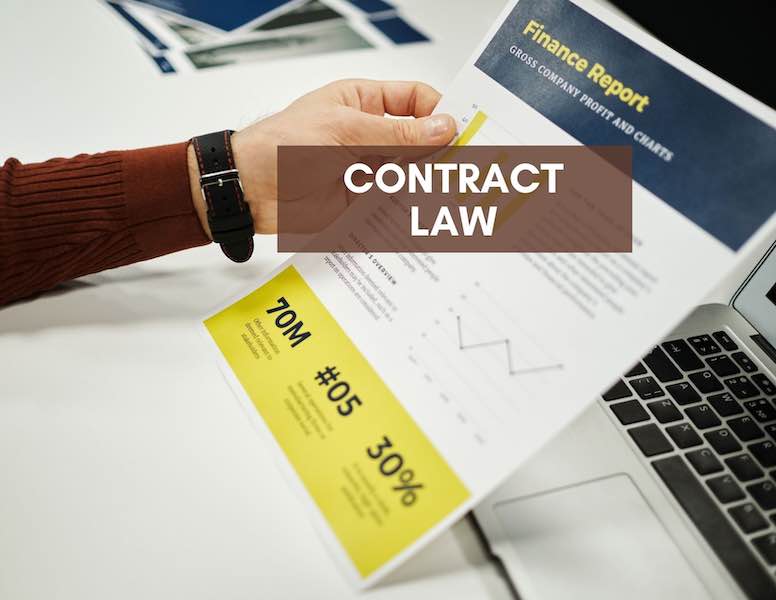Is Proclamation of Emergency the Death of Commercial Contracts?
by Nicholas Navaron Chula ~ 6 March 2021

Contributed by

Nicholas Navaron (Senior Associate)
Tel: 603-6201 5678 / Fax: 603-6203 5678
Email: nnc@thomasphilip.com.my
Website: www.thomasphilip.com.my
Introduction
There are generally two matters to be looked into when determining whether a mere proclamation of emergency affects the performance of a contract:-
Firstly, the contractual provisions. In this regard, the two most relevant contractual provisions which may affect the performance of a contract are the force majeure clause and the material adverse change clause.
Secondly, the legal doctrine of frustration.
What are force majeure clause and material adverse change clause?
Force majeure clause is a contractual provision excusing a party from complying with its contractual obligation upon the occurrence of an event.
There are generally three layers to a force majeure clause:-
First: the specific events covered under the force majeure clause (such as acts of god and government and legal measures such as proclamation of emergency).
Second: the threshold giving rise to the operation of the force majeure clause.
Third: the options available to the parties once force majeure clause is invoke – such as to suspend or terminate the performance of the contract altogether.
This clause typically applies where the agreements have been signed and completed, and the performance of which is still ongoing.
Material adverse change clause is a contractual provision aimed at giving an exit mechanism or a risk allocation mechanism to a party (or a purchaser) if certain events which materially affect the said party arise.
This clause typically applies where the agreements have been signed, but have yet been completed.
Examples:-
- Joint venture agreements which are subject to the procurement business license from the relevant authority.
- Sale and purchase agreements which are subject to the permission being procured from the State Authority for the removal of restriction of interests on the document of title.
- Supply agreements which are subject to an exit or suspension mechanism when there is a specified reduction in orders or loss of customers over a specific period of time.
Material adverse change clause is also often found in mergers and acquisition dealings.
In Satin Straits Sdn Bhd v Seng San Bing [2020] 8 MLJ 553 where the agreement to purchase the shares of the companies in question are subject to a material adverse change warranty that the
“…business [of the companies] has not been materially and adversely affected by the loss of any important client or sources of supply or by any abnormal factor not affecting similar businesses to a like extent and the Vendor are not aware of any facts which are likely to give rise to any such effects…”
1. Contractual Provisions
Force Majeure Clause
Whether a mere proclamation of emergency can give rise to the operation of force majeure clause will depend on the construction of the said clause.
Force majeure clause may come into play if the clause states that a mere proclamation of emergency.
Example: Neither the seller nor the buyer shall be liable for any non-compliance with the obligations set out herein where government or other legal measures are taken to address a pandemic.
Added threshold
The issue arises when there is an added threshold for the operation of the clause, such as when the clause will only be applicable if the event in question (i.e. proclamation of emergency) hinders, delays or prohibits the performance of the contract.
In this regard, the added threshold is the burden of proving that the proclamation of emergency has either hindered, delayed or prohibited the performance of the contract in question.
For instance: Section 3(1) of Emergency (Essential Powers) Ordinance 2021 (“Emergency Ordinance”) reads:-
“3 (1) For so long as the Emergency is in force, notwithstanding any provision in the Federal Constitution, the Yang di-Pertuan Agong or any person authorised by the King may take temporary possession of any land, building or movable property or part of any land, building or movable property and may give such directions as appear to him necessary or expedient in connection with the taking of possession of that land, building or movable property.”
If no government actions are taken to temporarily possess a movable or immovable property of a contractual party which results in the performance of the contract hindered, delayed, or prohibited, force majeure clause cannot be invoked.
Note: Termination of contracts which do not comply with the contractual procedure and requirements under the force majeure clause may result in an action for wrongful termination.
Such procedure or requirements include obligations to mitigate the impact of the force majeure event and to notify the counterparty of the occurrence of the force majeure event.
Material Adverse Change Clause
Similarly, whether a mere proclamation of emergency can give rise to the operation of material adverse change clause will also depend on the construction of the said clause.
The material adverse change clause does not even have to spell out specifically that the clause applies when there is a proclamation of emergency. So long as the proclamation of emergency could cause a substantial detriment to the performance of the contract or to any matter, the material adverse change clause may apply.
In Simpang Maju Enterprises Sdn Bhd v Soh Yen Ling (representative to Chau Yau Seng, deceased) (Malayan Banking Bhd, third party) [2017] 10 MLJ 648, the material adverse change clause reads:-
“Section 5.01 CONDITIONS PRECEDENT TO DRAWING
…
(e) the Bank is satisfied that as from the date when the Borrower first applied the Facility there has been no material adverse changes in the financial affairs of the Borrower which could or might adversely affect the decision of the Bank to proceed with or continue the Facility.”
The High Court held that:
“…the death of the deceased is definitely a material adverse change in circumstances and in such an event it is open to the third party consider whether it wishes to continue with the agreement or to cancel it.”
So, if, for example, a company’s factory is taken by the government pursuant to Section 3(1) of the Emergency Ordinance, a material adverse change clause in respect of an agreement for the sale of shares of the said company may come into play.
2. Legal Doctrine of Frustration
In the event that there is no contractual provisions providing any exit mechanism or risk-allocation mechanism upon proclamation of emergency, the legal doctrine of frustration as codified in Section 57(2) of the Contracts Act, 1950 may come in handy. Section 57(2) of the Contracts Act, 1950 reads:-
“(2) A contract to do an act which, after the contract is made, becomes impossible, or by reason of some event which the promisor could not prevent, unlawful, becomes void when the act becomes impossible or unlawful.”
According to the Court of Appeal in Hong Leong Bank Bhd v Tan Siew Nam & Anor [2014] 5 MLJ 34, the said doctrine may arise when the following occur:-
There is physical or literal impossibility to perform a contract;
The performance of an act “…may be impracticable and useless from the point of view of the object and purpose which the parties had in view and if an untoward event or change of circumstances totally upset the very foundation upon which the parties rested their bargain, it can very well be said that the promisor found it impossible to do the act which he promised to do…”
Although the legal doctrine of frustration appears to be a catch-all legal principle, it is not without any difficulty.
The doctrine, as demonstrated in Section 57(2) of the Contracts Act, 1950 as well as the Hong Leong Bank case, has a higher threshold to prove – that a mere difficulty or delay (see: Sentul Raya Sdn Bhd v Hariram Jayaram & Ors and other appeals [2008] 4 CLJ 618) is insufficient to give rise to its operation.
Instead, one must prove that proclamation of emergency has resulted in the contract impossible or unlawful to be performed.
Conclusion
It is important for parties to contemplate on adding a force majeure clause or a material adverse change clause into their contracts in order to absorb any potential losses or risks which may arise in the event that an event beyond the control of parties occurs, and which affects the performance of the contract. Although the legal doctrine of frustration exists, such doctrine only applies if and only if, amongst others, the performance of the contract is impossible or unlawful.